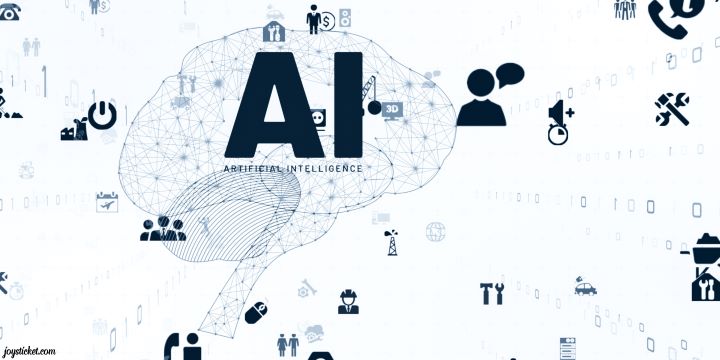Key Technologies Shaping the Master’s in AI Landscape
Key Takeaways:
- Advancements in Machine Learning, Big Data, and Neural Networks are pivotal in the AI landscape.
- A Master’s in AI equips students with cutting-edge skills in these transformative technologies.
- Knowledge of these technologies helps solve real-world problems and drive innovation across industries.
- Understanding ethical considerations is vital for responsible development and application of AI.
The Importance of Machine Learning
Machine learning is the backbone of numerous AI technologies. Machine learning enables AI systems to make predictions and decisions without explicit programming by training algorithms on vast datasets. This transformative technology is crucial in various fields, from healthcare to finance, and is a key component of many AI educational programs. Pursuing a Masters in Artificial Intelligence equips students with the skills to leverage machine learning algorithms for real-world applications.
For instance, machine learning is transforming medical diagnostics in the healthcare industry by making it possible to identify diseases early by studying medical pictures. Algorithms scan hundreds of photos fast, spotting patterns that the human eye might overlook, increasing diagnosis accuracy and speed. This capability is particularly significant in identifying conditions like cancer at an early stage, leading to more effective treatments and better patient outcomes.
Machine learning detects fraudulent activities in the financial sector by analyzing transaction patterns and flagging anomalies. Financial organizations use these algorithms to protect themselves from fraud and guarantee the accuracy of financial transactions. Additionally, machine learning models can optimize investment portfolios and forecast stock values, providing financial analysts with powerful tools to improve their decision-making. AI education should strongly emphasize machine learning since creating these applications necessitates a thorough grasp of the field’s theoretical and practical sides.
Role of Big Data in AI
Big Data is another cornerstone technology in the AI landscape. The vast amounts of data generated daily provide the raw material for training and refining AI models. Understanding how to manage, process, and analyze this data is essential for anyone looking to specialize in AI. More complex AI applications are now possible because to the efficient handling of these enormous datasets made possible by advancements in data processing and storage technology.
According to a BBC article, the ability to harness Big Data effectively is driving innovation across various sectors. For instance, in marketing, Big Data analytics gives businesses a profound understanding of customer behavior, enabling highly targeted marketing campaigns. Businesses can customise their adverts and recommendations by analyzing data from social media, past purchases, and browsing habits, increasing client satisfaction and engagement.
In transportation, data from GPS devices and sensors help optimize routes and reduce congestion, improving overall efficiency. Urban planners and city authorities can use Big Data to monitor traffic flow, predict peak congestion times, and develop smarter traffic management systems. Furthermore, in public health, researchers use Big Data to track disease outbreaks and identify emerging health trends. By analyzing data from various sources, such as hospital records and social media posts, public health officials can respond more swiftly to health crises and implement preventative measures. Mastering Big Data analytics becomes increasingly important for advancing AI technologies as data grows exponentially.
Advancements in Neural Networks
Neural networks, another important technology reshaping the AI landscape, are inspired by the human brain. These networks comprise linked nodes, or neurons, that collaborate to process data and come to conclusions. A subset of neural networks called deep learning has had a significant impact on autonomous systems, natural language processing, image and audio recognition, and other fields.
Deep learning algorithms can automatically extract features from raw data, reducing the need for manual feature engineering. This capability has led to significant breakthroughs in AI, such as self-driving cars and advanced language models like GPT-3. These advancements allow machines to perform tasks once thought to be the exclusive domain of humans. For example, self-driving cars use deep learning algorithms to interpret data from cameras, lidar, and radar to navigate roads safely.
A WHO paper describes the application of neural networks to develop more precise diagnostic instruments and individualized treatment regimens in the medical field. With the use of these technologies, doctors can prescribe personalized treatments based on a patient’s medical history and present symptoms. Neural networks can recognize intricate patterns and offer insights that help improve medical decision-making by merging data from many sources. These developments result from continuous AI research and development, making them an essential subject of study in academic AI programs.
Integration of AI Technologies in Academia
Academic institutions play a crucial role in furthering AI technologies by incorporating these three important topics into their curricula—machine learning, big data, and neural networks. Students who complete a thorough AI program will have the academic understanding and practical abilities necessary to create and use AI solutions. This integration encourages creativity and equips students to use AI to solve problems in the real world.
For example, students can work on projects that involve developing machine learning models for predictive analytics, analyzing Big Data to uncover insights, or designing neural networks for specific applications. These hands-on experiences are invaluable for deeply understanding AI technologies and their potential applications. By participating in internships, research projects, and collaborative initiatives, students can apply what they have learned in real-world settings, further solidifying their skills and knowledge.
Students who study the most recent developments in AI are better equipped to spearhead further improvements in the discipline. Academic programs also focus on multidisciplinary learning, acknowledging AI’s impact on multiple industries. Students are urged to research the applications of artificial intelligence in environmental science, healthcare, finance, and education. Graduates with this broad viewpoint are more equipped to solve problems creatively and adaptably, utilizing AI to tackle challenging tasks in various fields.
Ethical Implications in AI
As AI technologies continue to evolve, ethical considerations become increasingly important. Data privacy, algorithmic bias, and job displacement need to be addressed to ensure the responsible development and application of AI. Ethical guidelines and regulations are crucial for mitigating these risks and ensuring that AI technologies benefit society.
Accountability and transparency are crucial for fostering confidence in AI systems. This entails explaining how AI algorithms make decisions and ensuring they do not have any biases that could produce unjust results. Algorithmic prejudice, for example, can lead to unfair lending, hiring, and law enforcement policies. To address these biases, a multifaceted strategy combining varied data collecting, thorough testing, and ongoing observation is needed.
It takes cooperation between ethicists, technologists, legislators, and stakeholders to create thorough ethical frameworks that direct the development of AI. This collaborative approach ensures that ethical concepts are ingrained throughout the AI lifecycle and that various opinions are taken into account. We can develop AI technologies that are not only inventive but also ethical, just, and responsible by tackling these ethical issues. Building public confidence and acceptance of AI technologies requires ensuring that advancements in the field align with human rights and societal norms.
Future Outlook
The future of AI is filled with exciting possibilities. As technologies like machine learning, Big Data, and neural networks advance, their impact on various industries will grow. Academic programs focusing on these key areas are essential for preparing the next generation of AI experts to drive innovation and solve complex problems using AI. Integrating AI into everyday life will lead to smarter cities, more efficient healthcare systems, and personalized experiences that enhance quality of life.
Balancing innovation with ethical considerations is the key to a successful AI-driven future. We can harness their full potential while minimizing risks by fostering a deep understanding of AI technologies and their implications. This balanced approach will encourage sustainable and inclusive growth, ensuring that AI benefits a broad spectrum of society. As AI continues to evolve, it will play an increasingly important role in shaping our world, making it essential for students, professionals, and policymakers to stay informed and engaged in this dynamic field. Continued investment in AI education, research, and ethical frameworks will pave the way for a future where AI contributes positively to global challenges and opportunities.














